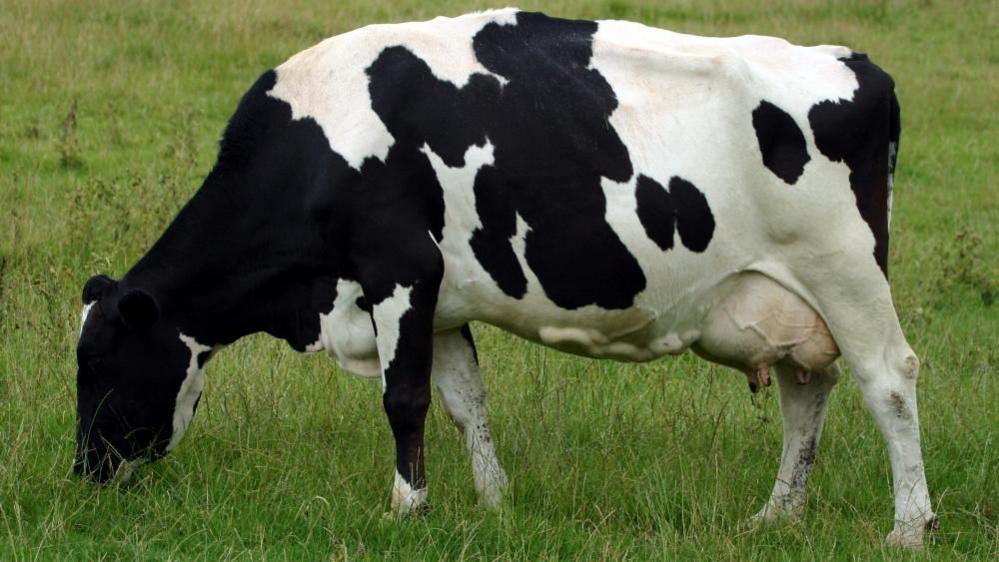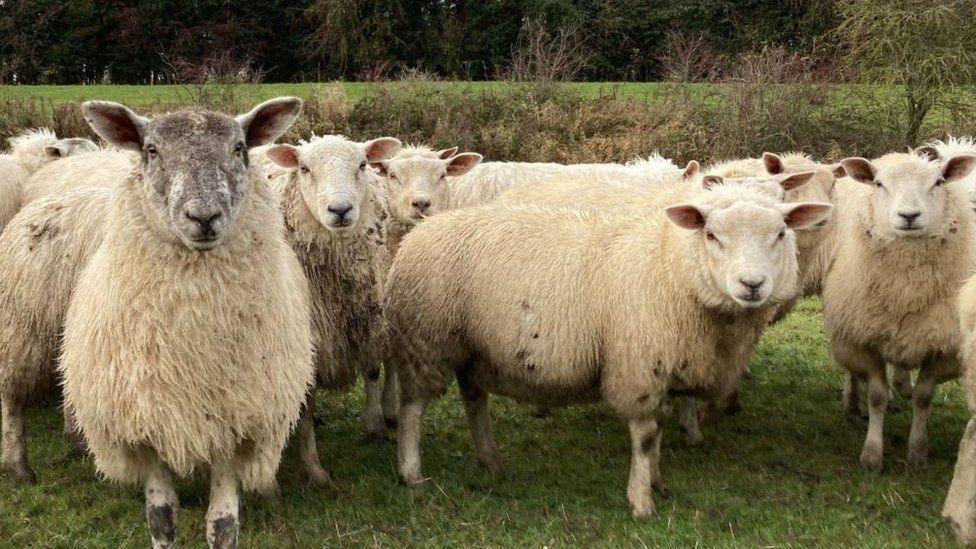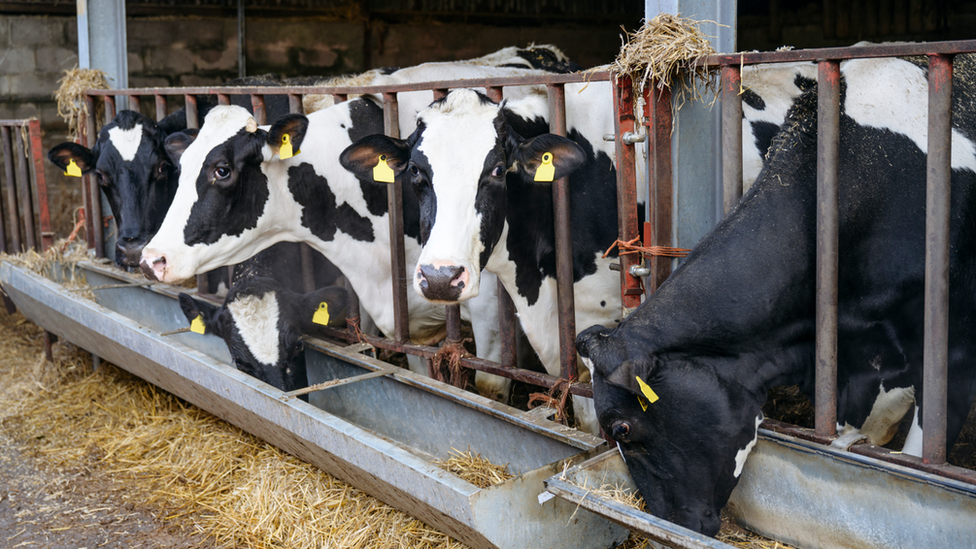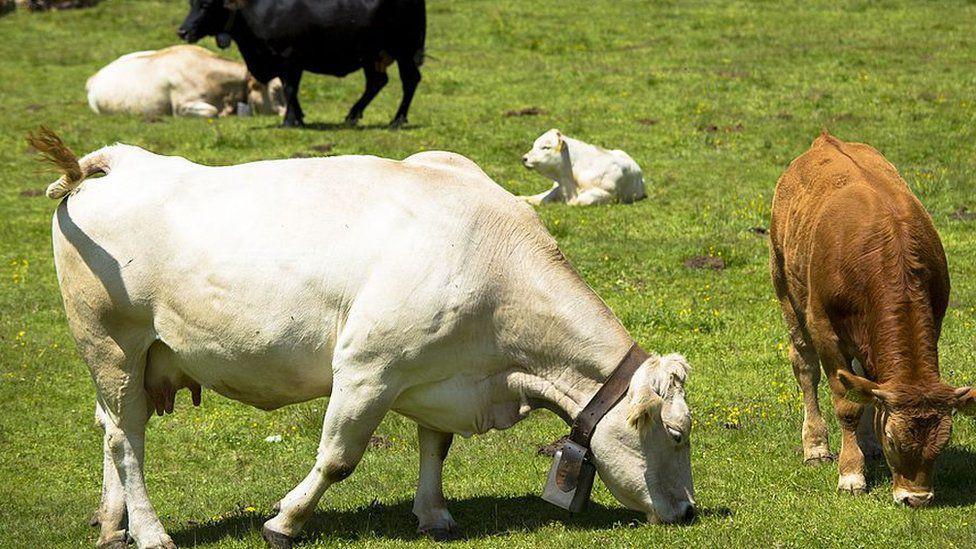Four more animals infected with bluetongue

Temporary restrictions were imposed on an area of Norfolk in December
- Published
Four more cases of the livestock disease bluetongue have been identified by government vets.
One animal was found to be infected in Norfolk and three among cattle in Kent.
The Animal and Plant Health Agency (APHA) said the latest diagnoses were detected in England's two temporary control zones, external (TCZs).
The agency said there were now 40 confirmed cases on 22 premises.
In December, a 10km (6.2 mile) TCZ for moving livestock was imposed on a farm just outside of Cantley, near Acle.
A similar zone was created near Canterbury in north east Kent in November.
At least six animals in Norfolk have now tested positive for the disease.
The Department for Environment, Food and Rural Affairs (Defra) said they would be humanely culled.
Bluetongue can cause infertility and breathing problems among a number of animals, including sheep, cattle and goats.

A sheep with bluetongue was found in Kent in December
Defra said a number of different types of the disease were currently circulating in Europe.
It can be spread to the UK by infected animal imports or by midges being carried across the English Channel by wind, external.
Bluetongue poses no risk to humans or the food chain, but outbreaks can result in prolonged trade and animal movement restrictions.
Farmers in Norfolk and the National Farmers Union have warned about a potential for bluetongue to become a major problem, external.
A statement by APHA said: "There is currently still no evidence that bluetongue virus is currently circulating in midges in Great Britain. Surveillance is ongoing."
Follow East of England news on Facebook, external, Instagram, external and X, external. Got a story? Email eastofenglandnews@bbc.co.uk, external or WhatsApp us on 0800 169 1830
- Published9 December 2023

- Published21 December 2023

- Published27 November 2023
